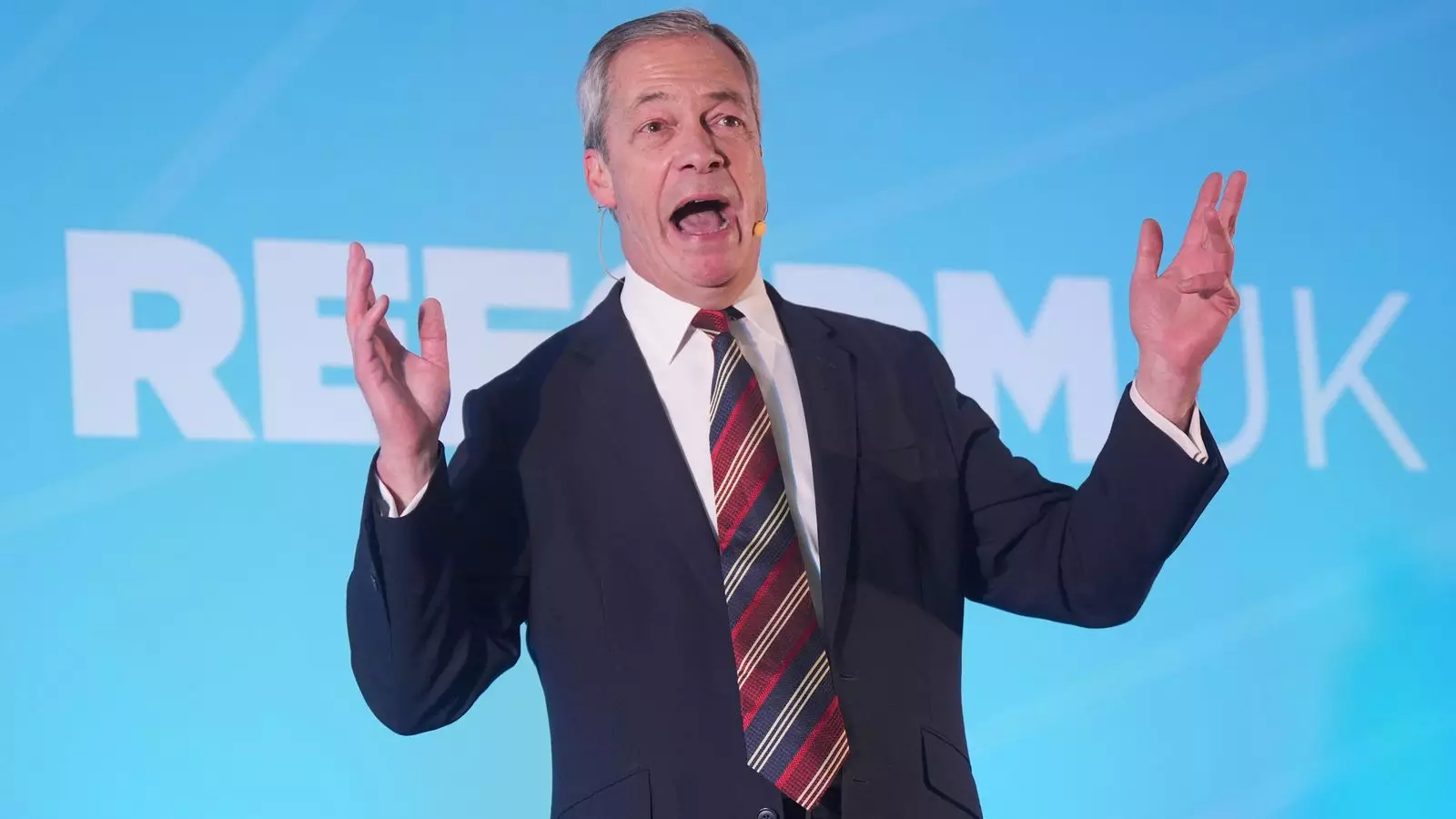Nigel Farage, the prominent politician and founder of the Reform Party, has recently weathered an unexpected storm stemming from comments made by tech magnate Elon Musk. In a revealing interview with Sky News, Farage emphasized his steadfastness in the face of criticism, declaring that he will not be intimidated by anyone, including the billionaire entrepreneur. The exchange between Farage and Musk adds another layer to the ongoing conversation about leadership in modern politics, particularly as it pertains to Farage’s controversial party and its stance on various social issues.
The friction between Farage and Musk came to light following Musk’s assertion that the Reform Party “needs a new leader” and that Farage “doesn’t have what it takes.” Musk’s comments, made on January 5th, were direct and unyielding, but Farage’s response was notably defiant. He articulated that while he respects Musk’s opinion, he will not allow such remarks to undermine his leadership or objectives. “I can’t be pushed or bullied,” Farage made clear, reiterating his commitment to his beliefs.
Farage’s relationship with Musk seems to shift in tone depending on the context. He described the tech mogul as a “friend” who expresses his candid opinions. However, the ideological chasm between them became apparent when discussing the controversial figure of Tommy Robinson, a far-right activist whom Musk has publicly defended. Farage stated unequivocally that Robinson would not find a welcome home within the ranks of the Reform Party. This insistence on maintaining a clear ideological boundary illustrates Farage’s desire to preserve the party’s image amidst rising tensions within political discourse.
Defining Ideological Boundaries
The controversy surrounding Tommy Robinson places Farage in a precarious position, one that necessitates careful navigation between personal relationships and the ideological integrity of his party. Farage’s firm stance against Robinson’s inclusion in Reform UK justifies his assertion that the party will not condone associations with figures notorious for their divisive rhetoric. This decision is crucial for establishing the party’s identity, especially in an era where populist movements often blur the lines of acceptability regarding extremist views.
Furthermore, Farage’s history with groups like the British National Party (BNP) shapes his refusal to ally with figures like Robinson. He asserts that the ideological divergences between reform-minded politics and far-right extremism must be starkly delineated. This notion is critical for rallying support within his party and the broader electorate, particularly those concerned about rising extremism.
In addition to navigating personal relationships and ideological boundaries, Farage’s recent comments reflect his broader political strategy. Speaking at the Reform Party’s South East of England Conference, he pointedly criticized the Labour government’s devolution plans, equating the potential postponement of local elections to a dictatorial act. Farage’s characterization of these actions as “a denial of democracy” illustrates his inclination to frame political narratives in stark, relatable terms that resonate with his base.
This rhetorical flourish serves a dual purpose: it positions Farage as a defender of democratic principles while simultaneously painting his political adversaries in a negative light. By portraying Labour’s actions as unjust and antithetical to democratic values, he seeks to galvanize voter support ahead of crucial local elections. Farage’s comments indicate a strategic pivot toward ensuring that his party is viewed as a legitimate alternative to traditional political parties, particularly during a period rife with political unrest.
Another layer to Farage’s political landscape is the perceived “institutional bias” against right-leaning parties. In his interview, he addressed concerns from within his ranks regarding reluctance to speak publicly about support for Reform Party initiatives. He dismissed claims of toxicity associated with the party, instead attributing negative perceptions to media bias. This posture reflects Farage’s broader narrative that discontent among centrist and right-oriented voters stems from a left-leaning media landscape that stifles dissenting voices.
While Farage may face considerable obstacles—including public criticism from influential figures like Musk and the challenges of maintaining a cohesive party identity—his commitment to his principles remains unwavering. Whether navigating complex relationships or addressing pressing political issues, Farage’s tenacity and willingness to confront dissenting opinions signify a resilience characteristic of a leader in tumultuous times. As he continues to navigate these challenges, it remains to be seen how the Reform Party will position itself within the ever-evolving landscape of British politics.


Leave a Reply